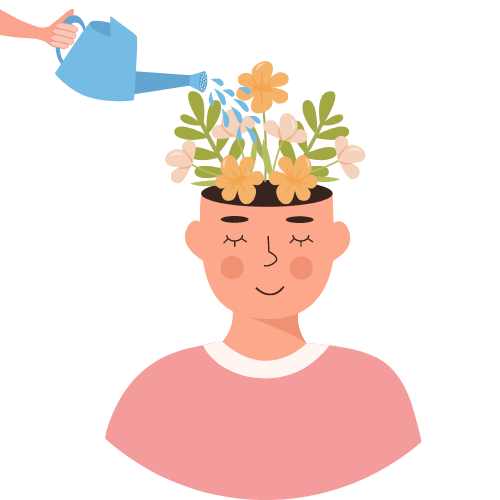The importance of compassion in creating communities in which we can live as well as possible.
As a human race we thrive in spaces where compassion, kindness and cooperation exist. And yet as a society our perception of success and happiness is rooted in individualism, competition, power and money. The result, as we see around the globe, is scarcity for the majority, depletion of natural resources, destruction and corruption. The pursuit of ‘more’ robs many of their basic human rights and is slowly killing our planet.
Owning personal responsibility
Sadly, not everyone recognises how the suffering of others damages us as a society. We can look away or cross the street to avoid the pain of another but seeing and doing nothing stays with us. Too often we ascribe responsibility to someone else without considering what our responsibility is, or indeed, the power we have to support someone in need. Support comes in many forms but is always rooted in compassion.
The bedrock of compassion

Compassion moves beyond feelings of sympathy and empathy motivating a person to take action to relive the suffering of another. The following analogy I think describes the difference but interconnectedness of pity, empathy and compassion well:
‘When you feel sympathy, you are outside the door, to feel empathy you are inside the room but to show compassion you are beside the person suffering.’
The beautiful thing about acts of compassion is not only does it help the person in need; it has a feedback loop of positivity for the person showing compassion. And it doesn’t stop there, the physiological and psychological benefits can be experienced by someone who witnesses the act of compassion. Just think back to a time when you saw someone help another, perhaps it was to pick up a dropped glove or give a homeless person a cup of coffee, how did it make you feel?
I think the Dalai Lama describes the benefits of compassion best:
“If you want others to be happy, practice compassion. If you want to be happy, practice compassion.” ~Dalai Lama
Benefits of compassion
So, what are these physiological and psychological benefits? Compassion improves physical health and emotional wellbeing. It Drives Social Connect And Increases Our Resilience. Compassion also can decrease stress, loneliness and reduce feelings of anxiety and instances of depression.
Let’s dive a little deeper to better understand what’s at play here. Studies have shown that compassion is linked to increased activity in the brain’s “pleasure centres” and that it activates the release of oxytocin, a hormone associated with feelings of love, trust, and bonding. This human connection is vital to our wellbeing. Listening to someone helps them to feel supported and validates their feelings. From here a person may start the process of healing.

Self-compassion
What about me? This is not selfish but is crucial to ‘your’ wellbeing. Like the air steward’s direction before take-off, ‘please ensure you place the oxygen mask over your mouth first before attending to someone else’. Makes sense right, you can’t possibly help someone else if you’re starved of oxygen and as a result are unconscious! And yet many of us do just that, we do, do, do for others ignoring our own needs. What happens, we become depleted and exhausted, sure then we are of little use to no one and now we need support.
Self-awareness is the very first step in looking after your wellbeing. It is awareness of your limits and what keeps you well. An understanding of your capacity to respond to responsibilities in the context you are operating, helps to assess your resources and when you need to invest in you. Often a universal saboteur of our resilience is the inner critic that provides a negative monologue that gets louder the more stressed and overwhelmed we become. When your thoughts start sounding like, ‘You can do better’, You should have known that would have happened’, ‘Why can’t you get this right?’ your inner critic is in overdrive, and you need to put on the oxygen mask.
Self-compassion comes in different forms for some it’s a good soak in the bath, for others time in the garden or a walk in the park, playing with the children, mediation, music or art. What form it takes doesn’t matter, the important thing is that it ‘fills your jug’, restoring your equilibrium so that you can take on the challenges anew. Perhaps you don’t know what fills your jug, that’s ok, start exploring what soothes you and quietens the inner critic.
Cultivating compassionate communities

Compassion plays a pivotal role in creating communities that foster wellbeing and allow us to live as well as possible. Compassionate parenting helps to nurture our young; compassionate schools, employers and institutions that prioritise our individuality and interconnectedness through policy and practice create opportunities for creativity, build self-respect, and equality.
Emotional wellbeing is a crucial component of overall health and happiness. Acts of kindness, empathy, and understanding create an environment where individuals feel valued and supported. And here’s the thing; we can all be compassionate with our time, our words, our silence, our presence. It’s as simple as taking the time and really listen to someone who needs support.
Social connection

Compassion combats social isolation by fostering connections. Afterall we are a tribal race, programmed to collaborate for the greater good. Strong social connections are linked to better mental and physical health. When individuals feel seen, heard, and cared for, they are less likely to experience feelings of loneliness or isolation. We have all felt lonely at some point in our lives, disconnection because of circumstances often is the invisible reason why a person feels lonely.
Consider for a moment how someone feels when living with an advanced illness, their health is predicted to deteriorate, they feel vulnerable, and they worry about the future and those closest to them. Friends and family have a very important role in supporting this person. Through practical and social support, they can help maintain this person’s independence by providing lifts and undertaking onerous tasks. They can give time to really listen to concerns. Involving a person in normal social activities like a trip to the beach or to the cinema ensure that this person feels included and part of their community.
Relationships
Compassion is foundational to building and maintaining healthy relationships. In compassionate communities, people are more likely to support each other through life’s challenges, creating an atmosphere of trust, cooperation, and mutual respect. It is so important that we prioritise important relationships.
In communities where compassion is prevalent, individuals are more likely to support and care for one another, creating a sense of unity and social cohesion and naturally develop strong support networks. Social cohesion doesn’t mean everyone is the same but rather recognises that we are diverse with different needs and resources but as a community we share the same value such as equality and justice. Shared values facilitate the sense of interconnectedness which in turn contributes to a healthier and more resilient community.
To finish
In summary, compassion is the glue that holds communities together, fostering a sense of belonging, empathy, and support. Communities built on compassion are better equipped to address challenges, create environments that promote wellbeing, and enhance the overall quality of life for their residents. All of us apply the glue in the daily interactions with each other.

